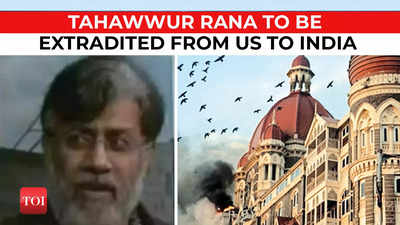
Rana, 63, was arrested in the United States in 2009 and later convicted in 2011 for providing material support to the terrorist organization Lashkar-e-Taiba (LeT) and for plotting an attack on the Danish newspaper Jyllands-Posten. He was acquitted of direct involvement in the Mumbai attacks during that trial. In 2013, he received a 14-year prison sentence.
India has long sought Rana's extradition, alleging his involvement in facilitating the Mumbai attacks, which resulted in the deaths of 166 individuals, including six Americans. The attacks targeted multiple locations, including the Taj Mahal Palace Hotel, Oberoi Trident Hotel, and Nariman House.
Rana's legal team has consistently argued against extradition, citing the principle of double jeopardy, which prevents a person from being tried or punished twice for the same offense. They contend that Rana has already been tried and acquitted in the U.S. for charges related to the Mumbai attacks. However, U.S. authorities have maintained that certain charges, such as forgery, were not addressed in previous trials, thereby justifying the extradition request.
In August 2024, the U.S. Court of Appeals for the Ninth Circuit upheld a lower court's decision, stating that the extradition treaty between the United States and India permits Rana's extradition. Following this, Rana's attorney approached the U.S. Supreme Court, reiterating the double jeopardy argument. The Supreme Court's recent decision to approve the extradition effectively exhausts Rana's legal avenues in the U.S.
This development is seen as a diplomatic victory for India, which has been persistent in its efforts to bring individuals involved in the Mumbai attacks to justice. The extradition of Rana is expected to provide Indian authorities the opportunity to prosecute him under Indian law for his alleged role in the attacks.
Rana's co-conspirator, David Coleman Headley, a Pakistani-American, pleaded guilty in 2010 to charges related to the Mumbai attacks and is currently serving a 35-year prison sentence in the United States. Headley cooperated with U.S. authorities and provided testimony against Rana during the 2011 trial.
